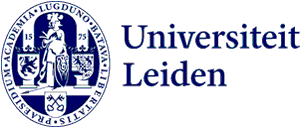Introducing: Floris de Ruiter
Floris de Ruiter recently joined the Institute for History as a PhD candidate, as part of Carolien Stolte's VIDI project 'Peace Palms. International Coalitions for Peace in the Era of Decolonization, 1918-1970'. The project runs alongside Carolien Stolte's ERC project 'Reconciling Peace: International Coalitions for Peace in the Era of Decolonization, 1918-1970'. Floris works together with Kamila Smagulova, Pratika Dewi and Henrike Vellinga. Below he introduces himself.

Hello! I warmly invite anyone reading this to connect in person – reach out or stop by Huizinga 1.19! For now, I’ll introduce myself virtually.
Last month, I began my PhD at the Institute for History and joined the Peace Movements project led by Carolien Stolte. Here, I explore the role of ashrams in shaping early 20th-century ideals of (non-)violence, focusing on evolutionist and ecological viewpoints.
The path of my current interests reflects a personal history of winding roads. Long before Covid-19, while I was still studying at Suzhou University, China, I first became fascinated by intellectual history. The grip which ideas could hold over events struck me as both relevant and poorly understood. Meeting people directly affected or inspired by events such as the Anti-Confucian Campaign during the Cultural Revolution led me to trace and rethink the ideas shaping them.
After returning from China, I pursued a double BA at University College Utrecht. I consider myself fortunate to have called UCU’s campus home for three years – a rare setting where small-class humanities education thrives. In addition to being taught broad historiographical debates, practices of paleography, and practical archival work, the double degree also allowed me to read and write widely. Recognizing the ideational depth required in intellectual history, I limited myself mostly to the late 19th- and early 20th-century, writing much on pre-existentialist critics of German idealism, Indian political thought, and literary societies of Republican China.
After my BA, I was fortunate to find a well-fitting master’s degree at Cambridge and to receive a scholarship, which allowed me to go deeper into the intertwined Indian and German intellectual histories of the same period. I focused on connecting concepts such as evolutionism, sovereignty, (non-)violence, and attitudes towards ‘nature’ in the works of Aurobindo Ghose, Friedrich Nietzsche, and Bal Gangadhar Tilak. Under the guidance of Shruti Kapila and Martin Ruehl, I contrasted Aurobindo’s Essays on the Gita with Gandhi’s Sabarmati lectures, situating both within the broader intellectual conversation between 19th-century Advaita Vedanta and German idealism. While the MA sometimes felt like a pressure cooker, I was amazed by how much I learned and by the number of exciting events, like Cambridge’s Graduate Day, that I could help organize in such a short time.
Now, I’m excited that these interests have come together in my PhD, which focuses on how ashramites shaped a global intellectual history of (non-)violence in the early 20th-century. In defiance of empire, ashramites expanded the debate on the rightful ‘home’ of violence by going beyond anti-statism. Through the themes of evolutionism and ecology, I want to uncover how thinkers in ashrams used anti-statist debates on self-rule, and their promises of peace, to revisit the question of violence in relation to (one’s) ‘nature’, shaping global peace movements. I am grateful to start my research under the guidance of Carolien Stolte and Marieke Bloembergen, and alongside Pratika, Henrike, and Kamila within the larger project on Peace Movements.
Though I spend too much time absorbed in reading, I find balance through physical activity. Running, ice-bathing, or going to the gym, always helps to clear my mind. While on an exchange program at UCLA, I took my love for sports further by joining their triathlon team. Surprisingly, just two months later, I was competing in the national championships! These days, I’ve slowed down a bit, sticking to a more relaxed daily workout or yogic practice.
Lastly, this past summer reflects how I like to spend my personal time. My girlfriend and I hiked through the Ladakhi Himalayas, combining our love for trails and reading. I spent the rest of the summer in ashram archives, connecting with archivists and starting to gather early materials for the PhD.
See you soon in Huizinga or around Leiden!
Warm regards,
Floris
